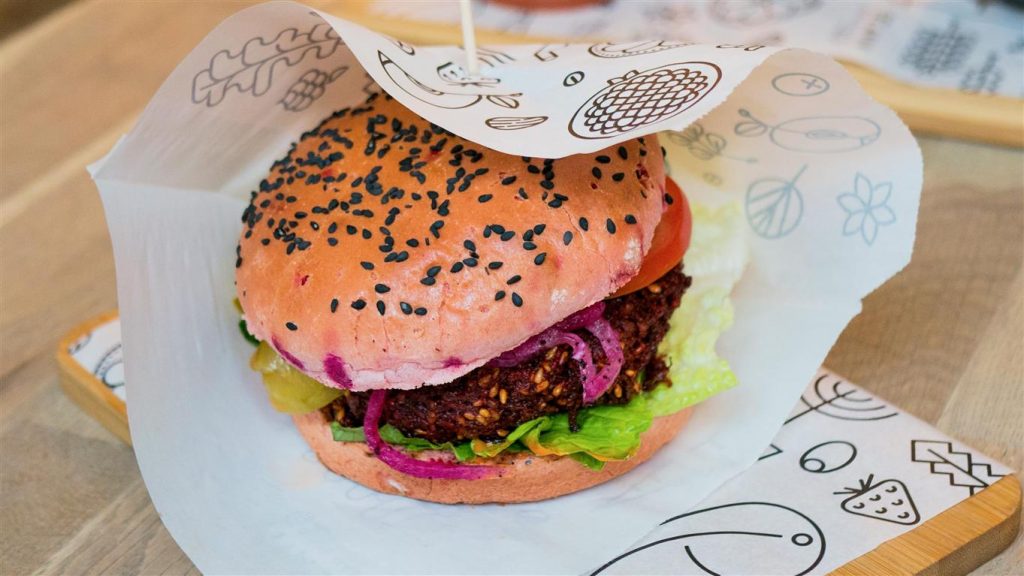
A few years ago, the idea of plant-based fast food sounded like a contradiction. Fast food meant burgers, fried chicken, and milkshakes — comfort food built for speed, not ethics or nutrition. Vegetarian options were usually sad side salads or a lonely packet of fries. But something has changed.
Look around today, and you’ll notice a quiet but powerful shift happening across menus and storefronts. From major chains to independent startups, plant-based fast food is moving from niche to mainstream. And this time, it’s not just for vegans.
So, what’s driving this movement? And is it just a trend, or a genuine transformation in how we eat on the go?
A New Generation of Eaters
Today’s diners are looking at food differently. Whether for health, animal welfare, climate concerns, or just curiosity, more people — especially younger ones — are reducing their meat intake. Not necessarily cutting it out altogether, but shifting toward what some call “flexitarian” eating.
This shift doesn’t mean everyone’s going vegan. But it does mean people are more open to meals where meat isn’t the centerpiece. Fast food, once the bastion of bacon and beef, is starting to reflect that.
Gen Z and Millennials, in particular, are helping fuel the growth of plant-based menus. They want convenience, yes — but they’re also asking more questions about where their food comes from, and what’s in it.
From Drive-Thru to “Plant-Thru”
One of the biggest wins for the plant-based movement is how it’s managed to rebrand itself. This isn’t about deprivation or being “that person” with dietary restrictions. Today’s plant-based fast food is bold, flavorful, and just as indulgent as its meaty counterparts.
Chains like PLNT Burger, Next Level Burger, and Veggie Grill are offering everything from loaded plant-based cheeseburgers to crispy “chicken” sandwiches, creamy shakes, and seasoned fries. They’ve nailed the sauces, the textures, the nostalgic flavors — all while leaving animal products out of the equation.
Even legacy fast-food brands are joining in:
- Burger King rolled out the Impossible Whopper to widespread acclaim.
- Taco Bell is testing plant-based proteins in various regions.
- McDonald’s has piloted the McPlant in several markets, gauging customer interest.
- Subway, KFC, and Pizza Hut have all tested or introduced meat-free alternatives.
For most of these companies, it’s not about pushing an agenda. It’s simply meeting demand.

Why It’s Working
A few key reasons explain why plant-based fast food is catching on — and not just as a fleeting trend.
1. Better Taste and Texture
We’re well past the days of rubbery veggie patties and bland tofu. Thanks to advances in food science (and a lot of trial and error), plant-based proteins now deliver on flavor and mouthfeel. Brands like Impossible Foods and Beyond Meat have helped set a new standard that even meat-eaters can enjoy.
When a customer can’t tell the difference — or simply doesn’t care — it opens the door for broader acceptance.
2. Health (Without Preaching)
While not all plant-based fast food is automatically “healthy,” many consumers perceive it as a better-for-you option. Whether that’s lower cholesterol, fewer antibiotics, or less saturated fat, there’s a growing belief that plant-based equals cleaner.
That said, these new chains are careful not to overpromise. They’re not selling salads. They’re offering fries, shakes, burgers — just made differently.
3. Environmental Concerns
Many diners are aware that animal agriculture has a major environmental footprint. While “sustainable” has become something of a buzzword, the core concern remains: how can we reduce harm while still enjoying the foods we love?
Choosing a plant-based burger once a week is a small, approachable step for many. No preaching required.
4. Convenience and Curiosity
Let’s be honest: fast food thrives on impulse. You’re hungry, you’re busy, you want something now. When plant-based options are just as fast, tasty, and filling — and priced competitively — people are willing to give them a shot.
And with social media playing a role in food culture, the “try-it-for-the-gram” effect helps spread awareness quickly.
The Business Behind the Boom
Opening a fast food chain is hard. Running a profitable one? Even harder. Yet plant-based startups are drawing investment and growing cautiously but steadily.
Why?
- Lower ingredient costs over time (especially as plant-based supply chains scale).
- Simplified food safety and storage, without the need to handle raw meat.
- Appeal to a wider range of dietary needs, including lactose-intolerant, halal, kosher, and allergy-sensitive customers.
- Smaller environmental footprint, which some landlords and municipalities favor when awarding space or permits.
This business model isn’t a replacement for traditional fast food, but it’s carving out a meaningful lane alongside it.
The Challenges Still Ahead
Of course, it’s not all smooth sailing. Plant-based fast food faces its own set of hurdles:
- Pricing: While prices have come down, many plant-based items still cost more than conventional options.
- Skepticism: Not everyone’s convinced. Some see meatless fast food as a “fad” or assume it lacks flavor or substance.
- Availability: Outside of major cities, options remain limited — though that’s slowly changing.
- Overprocessing Concerns: Some health-conscious consumers are wary of ingredients they can’t pronounce, even in plant-based foods.
These are real concerns, but not insurmountable ones. The key is transparency, taste, and meeting people where they are — not where you want them to be.
What This Shift Means for the Future
Plant-based fast food isn’t here to replace the Big Mac or double cheeseburger. But it’s becoming a real choice on the menu — not an afterthought.
And that, in itself, is a quiet revolution.
It signals a broader change in how we view food: not as binary (meat vs. vegan), but as a spectrum. A space where more people can make more flexible decisions based on their values, cravings, and circumstances.
It’s about expanding the definition of comfort food, not restricting it.
As more people try a meatless lunch here or a dairy-free shake there, the cultural conversation around plant-based eating shifts — not with slogans or movements, but with everyday decisions made in line at the drive-thru.

Final Thought: The Choice Is Yours
You don’t have to label yourself. You don’t have to change everything overnight. But knowing that options exist — good ones — is empowering.
The rise of plant-based fast food shows that eating differently doesn’t have to mean eating less joyfully. In fact, it might just open the door to new flavors, new habits, and a new relationship with what you eat.
Next time you’re grabbing something quick, consider the meatless version. You might be surprised — not just by the taste, but by how normal it feels.
Because that’s the future of fast food: less about labels, more about choice.





